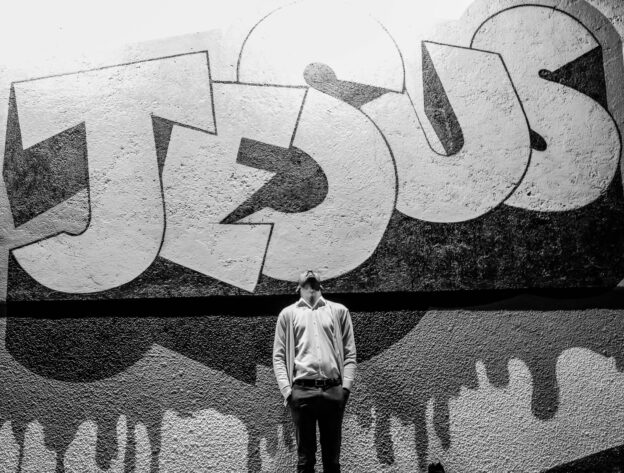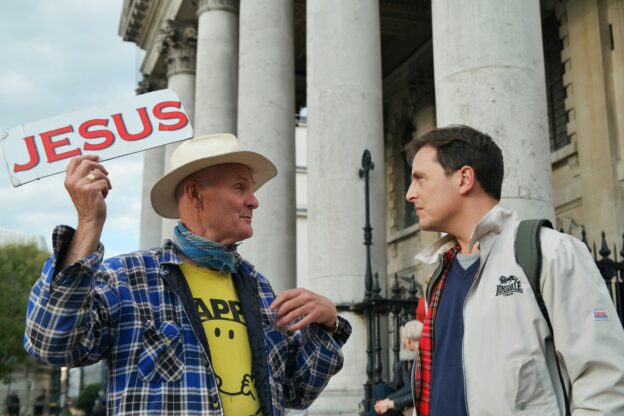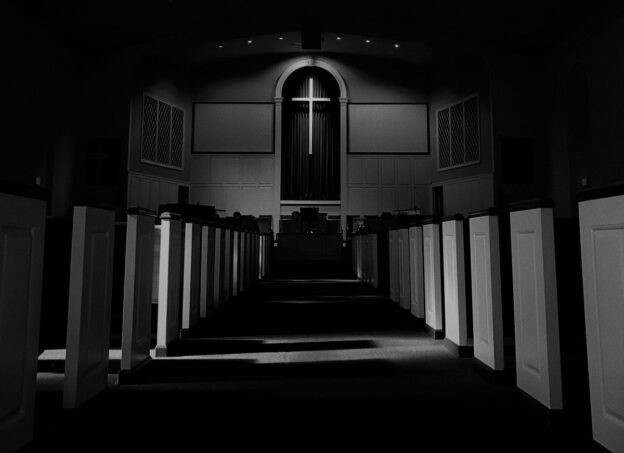Do you ever wonder how to leave your stuff behind? Loren Eiseley was one of my favorite writers, a distinguished anthropologist and essayist with the eye of an artist and the soul of a poet. He saw beyond the surface and had that rare double gift which enabled him to enter deeply into an experience and then share that experience with us. In one of his poignant vignettes from boyhood, he shares a moment of time that bears timeless truth.
Eiseley was 16, and one day he leaned out the second-story window of his high school and saw an old junk dealer riding in a cart filled with castoff clothing, discarded furniture, and an assortment of broken-down metal objects. A broken-down horse was pulling the cart. As the decrepit figures passed below him, Eiseley had a sudden sense of what time means in its passing. He wrote: “‘It’s all going,’ I thought with a desperation of the young confronting history. No one can hold it… we’re riding into the dark. When my eye fell upon that junk dealer passing by, I thought instantly, ‘save him, immortalize this unseizeable moment, for the junk man is the symbol of all that is going or gone.’”
After that, Eiseley said he could never regard time without a deep sense of wonder. He sought to receive every moment as a kind of gift that was only his. It’s an image to consider as we begin this new year. Let’s look at our scripture lesson, found in Genesis 45:1-28, which you can read here.
Tucked away in this story of Joseph’s sojourn into Egypt is a verse packed with far more meaning than appears on the surface. It is a word that carries a whole wagon-load of goods for reflection. It teaches us an eternal truth that we do well to consider as we move into the New Year. It is helpful in practicing how to leave your stuff behind.
Rehearse the story. Sold into slavery by his brothers, Joseph found favor with the Pharaoh and became one of the trusted officials in Pharaoh’s court. A strange irony of fate (the providence of God, of course) brought Joseph and the brothers who had betrayed him together again. A famine ravaged the land of Canaan, the people were without food, and they came to Egypt to buy food from the Pharaoh. They soon learned that the person with whom they dealt was the brother they sold into slavery, so the tables were turned. Here they were, asking food from the person they cast away.
When it came to Pharaoh’s attention that Joseph’s brothers came, it pleased him. He instructed Joseph to bring the whole family from Canaan, promising to give them the goods of all the land of Egypt. It is at this point we find the power-packed verse. Do this, said Pharaoh: “take some carts from Egypt for your children and your wives, and get your father and come. Never mind about your belongings, because the best of all of Egypt will be yours.” I like the way the King James’ version translates that. “Regard not your stuff, for the best of all the land of Egypt will be yours.”
Regard not your stuff.
There’s all sorts of meaning in that. One translation renders it, “leave your stuff behind.” Now some of us who have moved a good bit, like Methodist preachers, know what that means. We moved from Mississippi to California years ago. Moving across the continent made it even more difficult to decide what stuff we were going to take and what stuff we were going to leave behind. Moving is expensive. My wife, Jerry, collects rocks, and she had bushels of them. She knew better than to get into a discussion about taking those rocks from Mississippi to California. Do you know how heavy rocks are? So Jerry did a very cunning thing. She packed her choice rocks into kitchen canisters and cake tins and brought them along. The movers were mystified, I’m sure, as they handled those cake tins and canisters, and I learned of it long after I had paid the bill!
“Regard not your stuff,” said Pharaoh, “leave your stuff behind…for the good of all the land of Egypt is yours.”
By the time most of us get to be adults, we have accumulated a great deal of stuff – all kinds of stuff.
We’ve learned so many wrong things, stored up so much misinformation, learned to respond in so many destructive ways. We’ve adopted all the biting, snarling, snippy styles of relating, become secretive and cynical. We carry a lot of stuff around, and it burdens us down. It’s hard learning how to leave your stuff behind. We get all glued up in our limited world of habit.
So this word of Pharaoh to Joseph’s brothers is a good word for us, particularly as we begin this new year: leave your stuff behind. What is some of the stuff you need to leave behind as you begin the new year? What can you drop off your weary, bending back to make your trek into the New Year a bit easier and far more meaningful?
Leave behind self-pity.
Self-pity is a burden most of us are unwilling to drop off. Someone hurts our feelings and we carry our hurt with us forever. We’re treated unfairly and we never forget it. Something happens in our family and it seems to us like we’re being put down: someone else is receiving special treatment, so we get a kind of complex. We suffer physically and we get the idea that the whole universe is out to persecute us – such an easy snare to fall into! As long as we carry this burden of self-pity, we can blame our failures on someone or something else.
To go through life with the burden of self-pity is to go through life hampered. It is to stumble along at an uneasy, faltering pace, so we need to leave the bundle of self-pity behind us. We need to stride into the future, not with self-pity, but with self-affirmation. And when we rehearse the gospel, we know that we can do that because the whole of Scripture, especially the Gospels, is an affirming, not a destructive word.
Jesus said that not even a sparrow fell to the ground without the Father taking note. Then he added, “you are of more value than sparrows.” And how extravagant is this? “The very hairs on your head are numbered.” Each of us is a unique, unrepeatable miracle of God, and there is a place in God’s heart that only I can fill…that only you can fill.
“For thee were we made, oh God,” said Augustine, “and our hearts are restless until they rest in thee.” No wonder he said that; the psalmist himself had captured it long before – “You have made us a little lower than the angels, a little less than God, and crowned us with glory and honor.”
We don’t need to go into the New Year with self-pity because God is on our side. To let go of self-pity is to begin practicing how to leave your stuff behind. God created us. And God is going to be with us.
Leave behind illegitimate responsibility.
The next bundle of stuff we need to leave behind is illegitimate responsibility. I’m talking about the responsibilities which we rigidly claim for ourselves, but which don’t legitimately belong to us.
Our journey will be more meaningful if we can determine that there are certain responsibilities that are ours; these we will accept and give our resources to. There are other responsibilities which we simply have to leave with others and with God. Parents, there is a limitation to the responsibility we can take for our children. We must do all we can to nurture our children to live productive, helpful, meaningful, Christian lives. But beyond a certain time and place of nurturing, we must commit them wholly to God, and leave with them and with God the responsibility for guiding themselves.
This is conditioned by a special word to young parents. A Chicago suburbanite put on a last spurt of speed to catch his train but missed it. A bystander remarked, “if you’d run a little faster you would have made it.” “No,” the suburbanite replied, “it wasn’t a case of running faster, but of starting sooner.” Young parents, you can’t begin too soon to relate a child to God – to demonstrate clearly to your children your own commitment and values. We can’t depend wholly upon the church to instill within our children a love of God’s Word. That won’t do it; of course the church has a responsibility, but parents are primarily responsible. When we have been faithful in our parenting, we can leave our inordinate feelings of responsibility for our children behind.
There are responsibilities that we can and must assume – but many of us are weighed down by responsibilities that don’t belong to us. We must leave them behind.
Leave behind cancelled sin.
There’s a lot of stuff we ought to leave behind, along with self-pity and illegitimate responsibility. What stuff do you still need to leave behind? We can’t name them all, but let me mention one other bundle that we need to cast off as we stride into this New Year: the bundle of cancelled sin. The phrase comes from Charles Wesley’s hymn, “Oh For A Thousand Tongues To Sing.” He claims that this is the work of Christ.
He breaks the power of canceled sin,
He sets the prisoner free;
his blood can make the foulest clean;
His blood availed for me.
Scores of people who beat a steady stream to my study door for counseling are burdened down by cancelled sin. Somewhere in the past, they did things, got involved in situations, and were caught in relationships about which they feel morbid guilt. They carry this around as an inside burden which no one knows about. But like a malignancy, it grows and spreads until it poisons the person and brings a sickness like death.
The heart of the gospel is that God through Christ forgives our sins, and our sins are cancelled by God’s grace. But obviously, this fact and experience are not enough. Cancelled sin still has power – destructive power in our lives.
How then is the power of cancelled sin actually broken? How do we leave this burden behind? There is one key: confession and inner healing. I believe that under most circumstances, not only confession to God but confession to another is essential for healing and release from the power of cancelled sin.
This is the reason James admonishes us to confess our sins to one another and pray for one another. Once we confess to a minister or to an intimate friend or group, we don’t carry the burden alone. The poisonous guilt that was bottled up inside is now released. The cleansing and freedom that comes is wing-giving. Forgiveness and acceptance are confirmed in our lives and the fear of others knowing who and what we are is taken away.
A medical analogy works well here. When an infection appears somewhere on the body, antibiotics are given. If these do not destroy the infection, usually the infection is localized and has to be lanced. The surgeon uses the scalpel and opens the boil in order that all the poison can be drained. Confession is something like the surgeon’s scalpel. When we honestly open our lives in confession, all the poisonous guilt that we have bottled up within has a chance to flow out. Confession becomes the cleansing process by which the self is freed from the power of cancelled sin.
Now there are two requisites for redemptive confession – one, you must trust the person or the group to whom you confess; and two, your confession must not be destructive to another person. We cannot disregard the health and wholeness of another in order to seek our own release.
The big point is that the burden of erased wrongdoing is too great for us to carry into the New Year. You can leave that stuff behind, because God forgives. God loves you and accepts you. And if you’ve not experienced the release from cancelled sin, if the burden of it is still with you, you may need to find a person whom you love and trust with whom you can share. Open your life to them, and allow the poison to flow out in your honest confession. Remember the promise of John’s gospel: “if we confess our sin, he is faithful and just to forgive our sins and to cleanse us of all unrighteousness.”
I want to invite you now to use your imagination. Picture yourself with a big trash bag. Move through every room of your life; select the stuff you need to leave behind. I’m talking about self-pity and illegitimate responsibility.
Put it into the trash bag.
What cancelled sin still has power over you, what hidden hatred, what frustrating fear, what devastating doubt, what powerful prejudice?
Put it in the trash bag. Do it. Act it out in your imagination.
Put it into the trash bag.
Is there an unresolved relationship with a husband or wife, a parent or a child, a neighbor? Is there a jealousy you’ve never brought out into the open?
Put it into the bag.
It could be any number of things. You know what weighs you down, and what stuff you don’t need to take into the New Year.
Put it into the bag. Be specific in identifying and visualizing all the stuff in your mind to put into that bag.
Now stay with me in your imagination. Get in your mind the picture with which we began – the junk man with his cart filled with cast-off clothing, discarded furniture, all sorts of abandoned useless things. Do you see it in your mind? He’s passing by.
In your imagination now, throw your trash bag onto the junk wagon and let it be taken away.
Have you done it? In your imagination, just cast it onto the junk wagon to be taken away. Be silent now and enjoy the relief and release of getting rid of that burden. Keep the image of the trash man in your mind for a moment, taking all your trash away. Now substitute for the image of the junk man, Christ himself.
Do you see him? Jesus. Listen. Behold the Lamb of God who takes away the sins of the world.
Leave your stuff behind – all your junk. Leave it.
You are forgiven. Your failure and weakness are accepted. Your past is buried in the sea of God’s loving forgetfulness.
Go into the New Year with Christ, and go joyfully.









